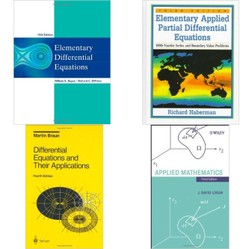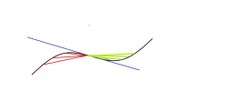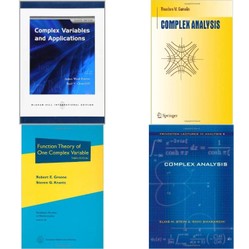Here you will find my reviews of what I consider to be the best textbooks in the topic of differential equations (Diff-EQ), or ordinary differential equations (ODE's). I start by highlighting my three favorite general introductory textbooks in this subject, and then I review an introductory book on Partial Differential Equations (PDE's)., followed by a more advanced, theoretical text on this subject. I finish by reviewing a more general book on applied math.
I have a master's degree in applied math from the University of Delaware, where I studied many fields within applied math. I have also taught mathematics at the college level, and tutored many levels of math. I worked with all of these books in graduate school. I'm very selective about what books I've chosen to include here; I've only reviewed books I consider to be the best of the best in the subject.
I hope you find these reviews useful! I start with some general info and advice; skip down if you want to get straight to the reviews.
















 The Shaming of Femininity and Elevation of Masculinityon 07/13/2017
The Shaming of Femininity and Elevation of Masculinityon 07/13/2017
 What is Genderqueer or Non-Binary Gender?on 10/16/2015
What is Genderqueer or Non-Binary Gender?on 10/16/2015
 Resources for Learning Spanish Free Onlineon 04/13/2016
Resources for Learning Spanish Free Onlineon 04/13/2016
 Ways Native Plants Can Help Control Invasive Plantson 05/26/2016
Ways Native Plants Can Help Control Invasive Plantson 05/26/2016



Questions? Comments? Feedback?